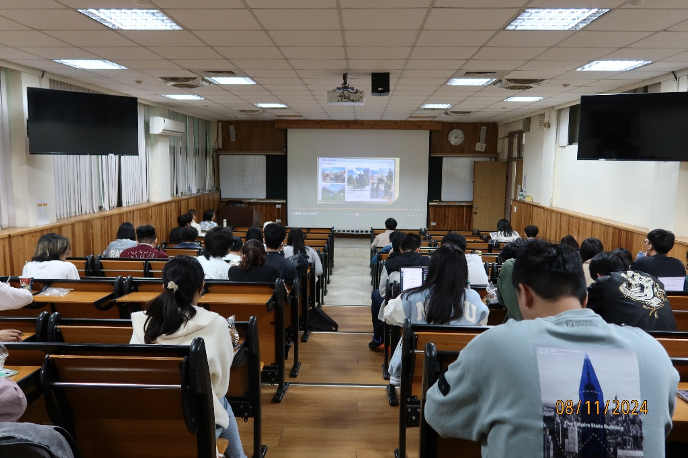土木四 Man Yeol Lee
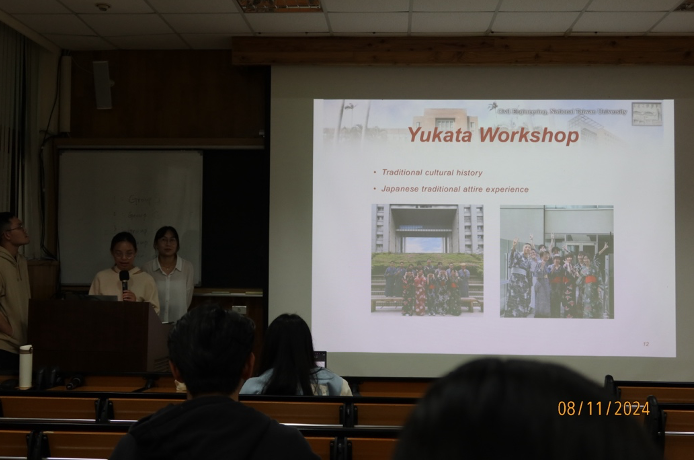
The Study Abroad Session held by the National Taiwan University Civil Engineering Department (NTUCE) was a significant event designed to inform and inspire students about the various international academic opportunities available to them. This annual event, which drew considerable participation from the department, served as an important platform for students to learn about the various pathways to gaining global experience, including semester long exchange programs, innovative dual degree tracks, and short term collaborative projects. For civil engineering students aiming to enhance their academic journey while also developing cultural awareness, this session was a great resource.
The event began with an opening address by Professor Louis Ge, Chair of NTUCE. Professor Ge’s speech, as always, was very welcoming and professional, as he highlighted the importance of international exposure in the field of civil engineering. In today’s interconnected world, engineers are increasingly tasked with addressing challenges that transcend national borders, such as climate resilience, urban sustainability, and disaster management. In addition, with the English Program at NTUCE, there are more opportunities now than ever before for students to pursue postgraduate studies abroad with NTU’s partner universities. Professor Ge highlighted how international academic experiences equip students with the skills and perspectives needed to succeed in such a dynamic and diverse professional landscape. His remarks emphasized that the ability to collaborate effectively across cultures and disciplines is crucial in the modern market. With his encouraging words, the stage was set for a session that aimed to provide both inspiration and actionable guidance.
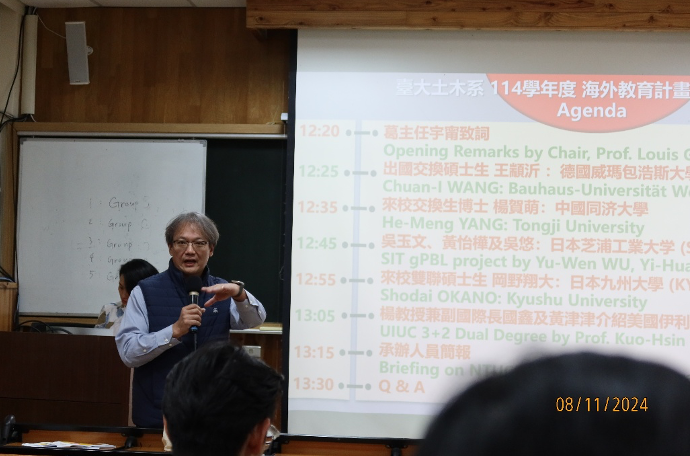
Following the opening remarks, the session shifted to a series of student presentations, which demonstrated a great reflection of how the program could potentially impact the students in the audience. These presentations offered firsthand accounts from students who had participated in a variety of study abroad programs, providing the audience with personal insights into the challenges and rewards of these experiences. The stories shared by the students painted a vivid picture of life as an international scholar and highlighted the diversity of opportunities available to NTUCE students.
One of the presenters recounted his time at Bauhaus-Universität Weimar in Germany. His experience was marked by significant cultural adjustment and personal growth, as they navigated the challenges of living and studying in a foreign country. He talked about the difficulties of learning the German language, getting used to different customs, and shared about the differences in daily life between Germany and Taiwan. However, the presentation leaned heavily on the personal and cultural aspects of the exchange, many of which were critical of the sister school he studied abroad at, with less emphasis on the academic opportunities and the structure of the program itself. While anecdotes about cultural differences and humorous misunderstandings were engaging and relatable, he left the audience wanting more insight into the technical and educational components of the exchange. For example, details about the specific civil engineering courses, collaborative projects, or research opportunities at Bauhaus-Universität could have provided a more comprehensive understanding of the program’s value.
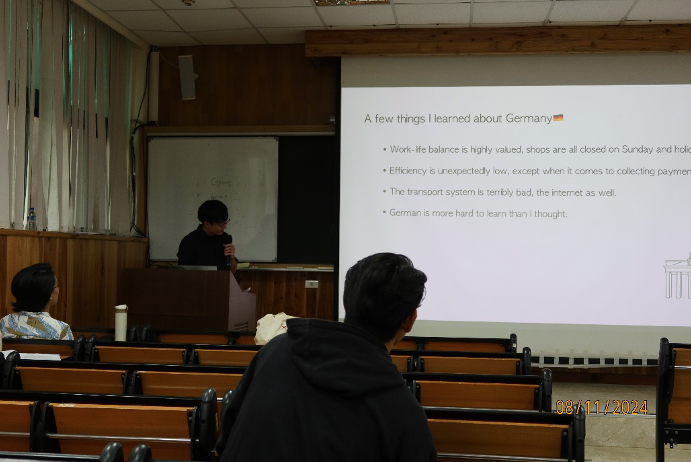
Another presentation featured an exchange student from Tongji University in China, who offered an interesting perspective on the differences between Chinese and Taiwanese academic environments. This presenter was more structured in her approach, providing a balanced view of both the cultural and academic aspects of their experience. She discussed the many facilities and programs and branches of civil engineering that were available at her home university. It seemed clear that the impressive facilities of Tongji University were great “wow” factor for the audience. She also shared the different sports teams and clubs she participated in back in China, and discussed the differences in how the two universities felt to her.
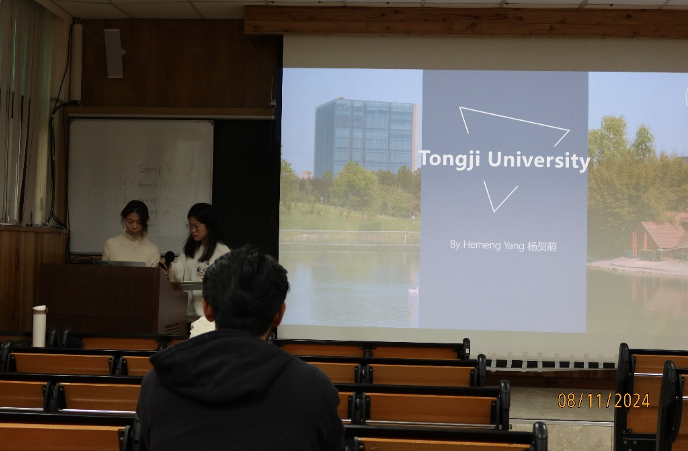
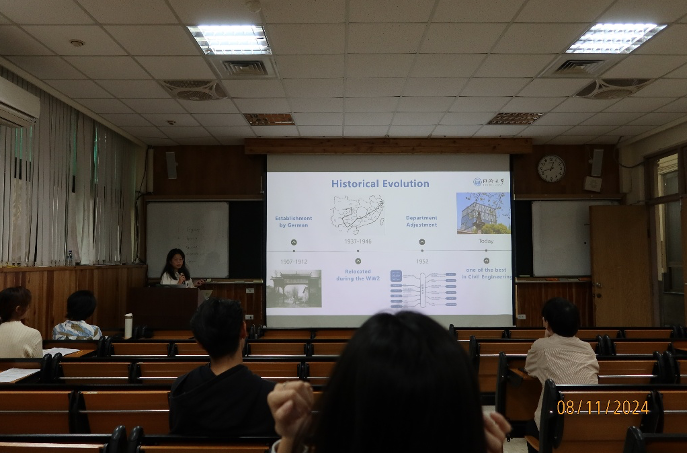
The presentations by students who participated in the Global Project-Based Learning (gPBL) program in Japan were also quite interesting, as they showcased the potential of short term programs to deliver impactful experiences. The gPBL initiative, held at the Toyosu Campus in Tokyo, allowed students to collaborate on engineering projects with peers from around the world while also immersing themselves in Japanese culture. The students who spoke about their gPBL experience all seemed very content with their time there, sharing details about their daily schedules, cultural experiences, and the friendships they formed during the program. However, much like the presentation on the German exchange, their talks focused more on the cultural and social aspects of the program than on the technical projects they worked on. For an audience of civil engineering students eager to understand the academic benefits of such initiatives, this omission was a missed opportunity. A more detailed discussion of the engineering challenges tackled during the program, the skills developed, and the outcomes of the collaborative projects would have added significant value to their presentations.
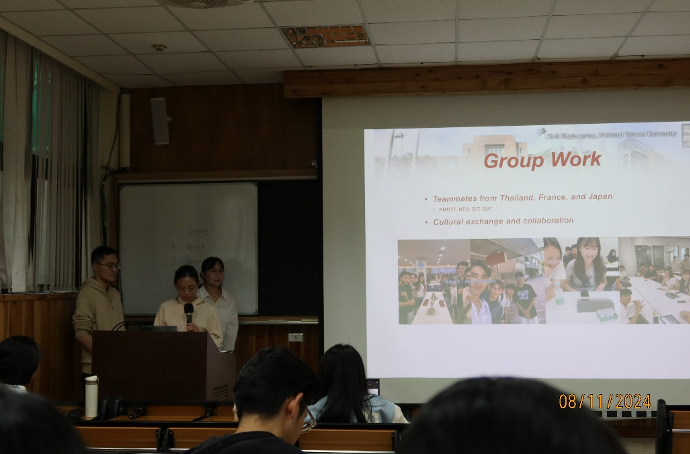
In addition to the student testimonials, the session featured a comprehensive overview of NTUCE’s study abroad programs, delivered by the esteemed Professor Kuo Hsin Yang and Chin Chin Huang. Their presentation was a deep dive into the logistics, requirements, and opportunities associated with our department’s international offerings, providing students with a clear roadmap for pursuing education abroad. Professor Yang began by outlining the department’s sixteen exchange programs, which span Asia, Europe, and North America. These programs are categorized into three levels: university level, college level, and departmental level exchanges, with each offering unique benefits and catering to different student needs. Departmental exchanges, in particular, are tailored to the NTUCE curriculum, ensuring that students can seamlessly integrate their international studies into their academic plan.
The session also highlighted the dual degree programs offered by National Taiwan University’s Department of Civil Engineering, which are among the most ambitious pathways for students seeking a truly global education. These programs are designed to provide students with the unique opportunity to earn degrees from both NTU and one of its prestigious partner universities, allowing them to gain a competitive edge in the highly competitive global job market. The programs are structured to ensure that students receive a rigorous and comprehensive education, incorporating the strengths and specializations of two renowned institutions. By earning dual degrees, students not only broaden their technical expertise but also deepen their cultural understanding and global awareness, key attributes in today’s interconnected engineering field. These programs are particularly appealing to students who aim to work in multinational engineering firms, international organizations, or pursue further academic research, as they equip students with credentials recognized worldwide.
The traditional 4+2 program, which involves four years of undergraduate study at NTU followed by two years of graduate study at a partner university, was explained in great detail during the session. This program provides students with an extensive academic foundation at NTU before moving on to specialized graduate coursework abroad. Upon completion, students will have earned both a bachelor’s degree from NTU and a master’s degree from their partner institution, ensuring they have the expertise and international perspective that employers increasingly demand. Alongside this traditional track, the 3+2 program was also discussed, which allows students to complete both a bachelor’s and a master’s degree in just five years. This accelerated pathway has become increasingly popular among students who wish to fast-track their academic and professional careers without sacrificing the depth or quality of their education. By compressing the timeline, the 3+2 program allows students to enter the workforce earlier, gaining experience and making meaningful contributions to global engineering projects at an earlier stage. The program, which maintains the high standards of both NTU and its partner universities, ensures that students graduate with the advanced technical and leadership skills necessary for high-level engineering roles.
Then came the introduction of the six partner universities that participate in these dual-degree programs, each offering distinctive academic strengths and opportunities. The partner institutions include Kyushu University in Japan, City University of Hong Kong, and the University of Illinois Urbana-Champaign (UIUC) in the United States, with additional partners across Europe and Australia. These universities are renowned for their quality research, and strong industry connections in various fields of civil engineering.
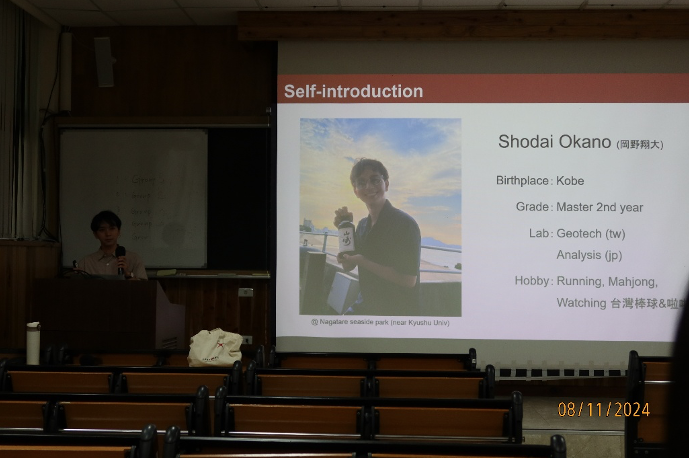
Each program has its own set of requirements, credit transfer policies, and scholarship opportunities, all of which were meticulously explained during the session. For example, students applying to the Kyushu University dual degree program must have a strong background in structural engineering, with a minimum GPA requirement of 3.0, while those applying to UIUC must demonstrate proficiency in advanced mathematics and environmental science. Credit transfer policies were also discussed in detail, clarifying how coursework completed at one university will be credited towards the degree requirements at the other institution, ensuring that students do not lose time or credits during their international education. Additionally, various scholarship opportunities were presented, including funding from NTU, external organizations, and partner universities, which help make these programs more accessible to students of diverse financial backgrounds. For instance, Kyushu University offers scholarships specifically for international students in engineering, while UIUC has merit-based awards.
This detailed explanation of the dual degree programs was particularly valuable for students considering these opportunities, as it provided them with a clear understanding of what to expect in terms of academic workload, application procedures, and the steps required to prepare for studying abroad. The professors implied the importance of early preparation, as students need to ensure they meet the specific academic qualifications, language proficiency requirements, and other prerequisites for each program. This includes submitting official transcripts, letters of recommendation, a statement of purpose, and proof of language proficiency through standardized tests such as TOEFL or IELTS, as required by the partner universities. Additionally, students must be prepared for a highly competitive selection process, with only a limited number of spots available for each program.
By offering dual degree programs, NTUCE empowers students to immerse themselves in different cultural and professional environments, preparing them to become leaders in global civil engineering. These programs are ideal for students who seek to broaden their academic horizons, develop international networks, and stand out in the competitive global job market. Professor Yang’s detailed presentation left students with a clear path forward, equipping them with the tools, resources, and knowledge needed to pursue these transformative opportunities.
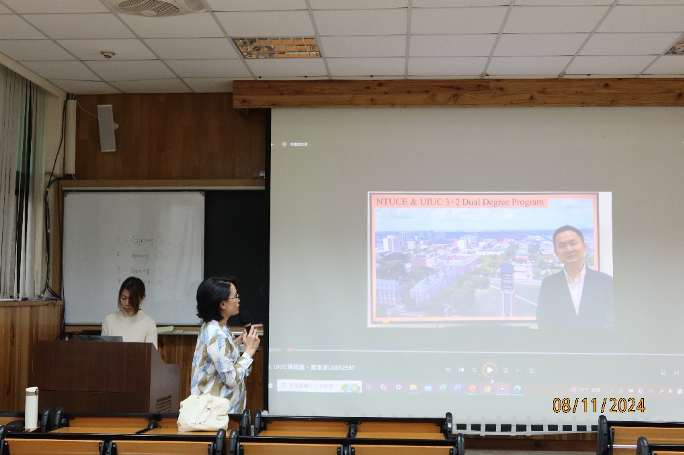
Another key focus of the session was the Global Project-Based Learning (gPBL) program, a short-term initiative that combines academic collaboration with cultural immersion. Held annually at the Toyosu Campus in Tokyo, the gPBL program is designed to foster cross-cultural teamwork and problem solving skills. Professor Yang’s presentation on the program included detailed information about the application process, costs, and scholarship opportunities, as well as examples of past projects. However, as noted earlier, the student presenters who participated in the program could have elaborated more on these projects to provide a clearer picture of the program’s academic value.
In addition to introducing the various programs, the session offered practical guidance to help students navigate the logistics of studying abroad. This included detailed explanations of the application procedures, scholarship opportunities, and pre-departure preparations. Students learned about the specific documents required for each program, the application timelines, and the eligibility criteria for departmental exchanges. Scholarship options from NTUCE, NTU, and the Ministry of Education (MOE) were also discussed, along with tips on how to maximize funding opportunities.
One important point raised during the session was the impact of the Taiwan Scholarship on international students planning to study abroad. According to the scholarship’s stipulations, recipients who choose to participate in an exchange or dual-degree program will have their scholarship canceled, and any remaining funds will not be retained or extended. This policy is an important consideration for international students and highlights the need for careful financial planning when pursuing study abroad opportunities.
The session concluded with a discussion of pre-departure preparations, including housing options, orientation materials, and conscription requirements for Taiwanese students. This practical advice was invaluable for students preparing to embark on their international journey, ensuring that they are well-equipped to handle the logistical challenges of studying abroad.
Overall, the NTUCE Study Abroad Session was a success, offering lots of information and inspiration to students eager to travel abroad for their studies. For those who missed the event, the opportunities are still waiting, and the department’s dedicated faculty and staff are always available to provide guidance and support. Perhaps the with a growth of interested students, the department would work to expand its connections and create even more opportunities for students to study in other countries.
